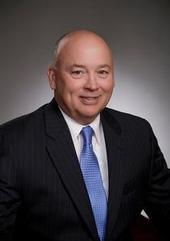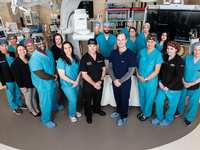- Sections :
- Crime & Public Safety
- Restaurants & Food
- Sports
- More
Texas Secures Major Funding for Doctors, Hospitals

AUSTIN, TX – The Texas Health and Human Services Commission has secured $84 million to help fund physician resident positions at public teaching hospitals in Texas.
These dollars, through graduate medical education payments from Medicaid, are designated for non-state, government-owned and -operated teaching hospitals and will help expand the state’s ability to attract and retain doctors.
HHSC also is pursuing similar funding for privately owned and operated teaching hospitals. Texas will submit its request for private hospital funding to the Centers for Medicare and Medicaid Services this spring, with an anticipated April 1 effective date.
With the expanded funding, Texas expects to see an increase in the number of residency positions for medical school graduates because hospitals will be better equipped to cover training expenses for interns and residents. Increasing the number of available residency positions in Texas strengthens the state’s ability to retain doctors.
“Texas is pursuing every available funding option to help make health care in Texas even stronger,” said HHS Executive Commissioner Dr. Courtney N. Phillips. ”Enhanced funding and solid partnerships with hospitals will take us to the next level in terms of quality care and keeping Texas doctors here.”
Texas pursued the funding for non-state, government-owned hospitals through a Medicaid state plan amendment submission to CMS in December. The dollars are primarily federal funds, with local governmental entities as the source of the non-federal share. Hospitals able to receive this new funding include:
Harris County Hospital District, Houston
Hunt Regional Medical Center, Greenville
John Peter Smith Hospital, Fort Worth
Medical Center Hospital, Odessa
Midland Memorial Hospital, Midland
Parkland Memorial Hospital, Dallas
University Health System, San Antonio
University Medical Center of El Paso
University Medical Center, Lubbock
The state aims to expand the graduate medical education funding efforts to all teaching hospitals in the state. The addition of private teaching hospitals, if approved by CMS, will lead to another surge of funds for Texas hospitals, up to $111 million in payments for the first year.
'As a state, we must do everything we can to attract and retain the best possible doctors for the people of Texas. I appreciate that we're all working together to pursue funding for Texas hospitals to expand and improve care through graduate medical education and maximize dollars for healthcare in Texas,' said Sen. Kirk Watson.
“During the interim last year, I had the opportunity to work with HHSC on the concept of using intergovernmental transfers to help fund graduate medical education slots at public hospitals. Based on our efforts, HHSC is now seeking to expand the use of intergovernmental transfers to make Medicaid GME supplemental payments to privately owned and operated teaching hospitals,” said Sen. Juan “Chuy” Hinojosa. “This would bring in hundreds of millions of dollars in funding to help us meet our goal of providing 1.1 first-year GME positions for every medical school graduate in the state. These funds would go a long way toward ensuring that Texas has the necessary amount of highly trained doctors to meet the state’s health care needs.”
“The state’s tremendous economic and job growth puts a fine point on the need to ensure we are adequately growing our physician population,” said Ted Shaw, president/CEO of the Texas Hospital Association. “We appreciate the state’s work to secure this funding as well as the Legislature’s priority on graduate medical education over the last several legislative sessions.”
Texas currently makes graduate medical education program payments to five state-owned hospitals in the state. Those payments are worth approximately $30.5 million per year.
Graduate medical education, also known as residency training, is the supervised training medical school graduates enter to gain clinical skills and in-depth experience in a specific field of medicine before becoming licensed doctors.
For additional background, go to HHSC’s report Enhancing Funding for Graduate Medical Education.
















